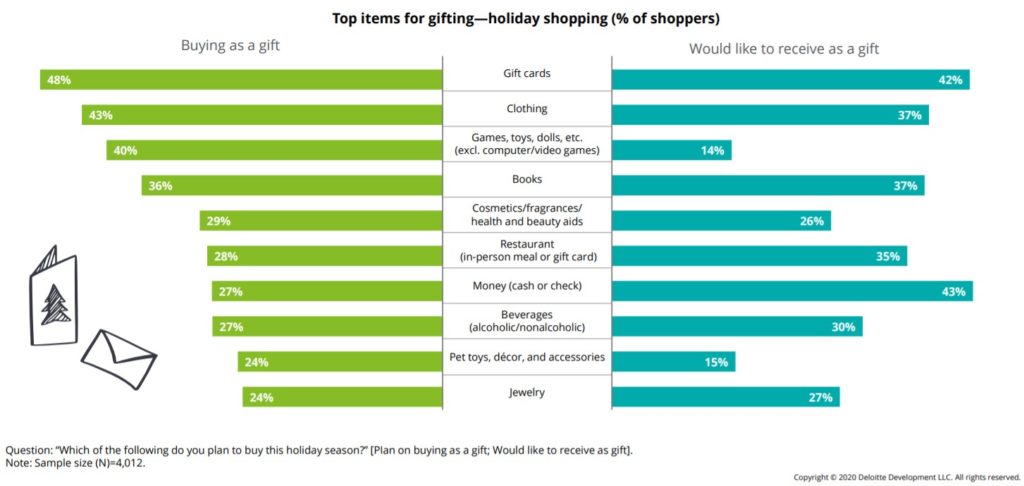
Amazon is changing the way we buy products. This has had an impact on both brick and mortar stores and ecommerce. It also has a negative impact on consumer satisfaction. This study examines how this phenomenon affects the electronics retailing industry. The study shows that online purchases have grown while physical stores are declining in number. Additionally, customers have higher expectations of their buying experience. The Amazon effect is a significant development in the consumer electronics industry.
Consumers are increasingly buying online.
Amazon has a large impact on consumer expectation. Many retailers have seen a rise in online sales, while others are seeing their business suffer from increased dependence on physical stores. Amazon's effect on service levels is under investigation. Researchers also examine the interaction between service attributes and the customer experience. While this preliminary study has provided some insights, more research is required to explore a wider range.
Feedvisor recently reported that ecommerce sales could surpass $3500 trillion by 2025. This would represent 15 percent of all retail sales. This trend could have been accelerated by a pandemic called Covid-19. Amazon accounts for 40% of all e-commerce purchases in the US and has driven half of the growth in retail in the last five years. While the Amazon effect is not fully understood yet, some factors explain why consumers are turning to ecommerce for purchases.

Impact on brick-and–mortar retailers
The "Amazon effect" is a term used to describe the decline of traditional retail outlets. Amazon's success has allowed for lower operating costs and provided a wide range of products at very low prices. Amazon has a great customer service team and a return policy second to none. Its customer-centricity also makes it possible to anticipate and fulfill customer needs more effectively than any other competitor.
The Amazon Effect is the name of this powerful disruption in the retail industry. Many retailers have had to adapt their business models to be competitive with Amazon because of the popularity of online shopping. Customers expect a more personalized, frictionless and personalized shopping experience. This can be achieved with just a few clicks. This has had a negative affect on some brick and mortar businesses, but many have adapt to this new reality.
E-commerce Impact
It's clear that Amazon Effect is having an impact on traditional retail outlets, as well as consumer buying patterns. People are becoming more familiar with online shopping and prefer the convenience and ease of purchasing products. Online shopping gives shoppers the freedom to shop whenever and wherever they like. Amazon is expected to continue increasing its share of the online e-commerce market over the coming years.
Amazon already has a significant impact on the business world. Not only have they driven down prices for consumers, but also forced traditional retailers to change strategy. E-commerce has led to many new jobs. But, Amazon's impact on ecommerce will be different for each industry. One thing is constant: it's important to keep an eye on Amazon’s changing business practices.

Impact on customer satisfaction
Amazon's effect on customer satisfaction can have far-reaching consequences. Because Amazon sets higher standards for retailing than other retailers, it has affected consumer expectations. This has raised expectations for e-commerce, since consumers are influenced by the services that Amazon provides. Amazon-related attributes are also reflected in consumers' expectations of other E-Retailers. This is problematic, as consumers will always expect a certain standard of service.
But, the critical missing piece to research is the importance of service attributes. Customer satisfaction is not only determined by price but also by service quality. Recent Facebook poll results showed that Amazon customers rated Amazon's customer service as superior to other e-retailers. This resulted in customers being dissatisfied at other electronic retailers. To evaluate brick-and–mortar retailers, customers use Amazon's services in addition to logistics and price.
FAQ
Where can I get coupons for online shopping
There are two methods to find coupon codes for online shopping. Both methods work but certain websites may be more easy to navigate.
What are the best days to go online shopping?
Sunday is the best day for shopping online for clothes. This is because you can take your time and browse through different stores to find what you are looking. On Monday you need to buy everything you need for the week ahead. Do any last-minute shopping on Tuesday. Wednesday is when you should start buying for Christmas. Thursday is the day you should begin planning for Easter. Friday is when you should start getting ready for the summer holidays. Saturday is the time to prepare for the school holiday. You should also finish any tasks that you have left for the week on Sunday.
How can I make smart shopping online?
Smart shopping online is about finding ways to save money while still getting the best quality. Here are some tips.
Shop around first. Compare prices and determine which store offers you the best deal.
Secondly, consider using cash back apps such as Ebates. They are similar to cashback program found in physical stores. Based on how much you spend, points are earned when you shop using their app. You can then redeem these points for gift cards, or discounts.
Third, you should look out for promo codes. These codes can be found on websites like RetailMeNot.com. Just enter the code during checkout and voila! The savings will be automatically applied.
Don't forget about clearance sections. Often times, you can find amazing deals on high end brands at discounted prices.
What if I want to buy clothes online?
Absolutely! It is actually much easier to buy clothing online. All major retailers offer free returns. Simply print the label and return it to us.
Keep in mind, however, that you will not receive a refund if the item has been received. You will have to return the item if you decide not to buy it.
How can I be an intelligent consumer when online shopping?
You can only succeed if you know how to make informed decision. Know what you want, and why. Then, you can find the best deal.
Also, you should learn how to shop around and compare prices at different retailers. This will enable you to determine where your money is best spent.
Look carefully at reviews and ratings when you are looking at products online. They could help you decide if to buy.
There are many ways to save money if you don't want the full price.
Credit card companies can offer financing for expensive purchases. They offer special deals such 0% interest over 12 months.
There are many ways to save money on online shopping. These are just a few.
Are there any tricks or tips that will help me save money shopping online?
You should first make a list. Then go through each item on your list and decide which one you prefer to buy at a lower cost. After making your decision, you can compare prices on several websites. You should compare prices across multiple websites to determine the lowest price for each product.
How can I avoid being conned when shopping online?
Be vigilant when you shop online. Before you make a purchase online, be sure to read reviews and review the feedback of customers. You should never send financial information via email. Instead, make use of a secure site such PayPal. This way, you can rest assured knowing that your information is safe.
Statistics
- The tax is automatically added once you click the checkout button, so factor in an additional 20% when looking at the product page. (makeuseof.com)
- A report from the U.S. Census Bureau found that in the first quarter of 2022, an estimated $250 billion was spent on retail e-commerce sales.1 (thebalance.com)
- An approximately 90% increase in price affords Hotel X the opportunity of extreme profits under severe circumstances. (dos.ny.gov)
- The vast majority only change a password to protect privacy a few times a year (27 percent) or, more likely, never (35 percent). (pcmag.com)
External Links
How To
How to shop online securely
Online shopping can be one of the most convenient and cost-effective ways to purchase goods or services. But this convenience comes with a price. Online shopping has many advantages, but there are also risks. The biggest risk is identity theft. Identity theft is the biggest risk. Identity thieves can use your personal information (name, address and credit card number) in order to steal money or make fraudulent loans against you. Your stolen information is then sold on the black marketplace. These tips will help you to be safe while conducting business online.
-
Use secure websites. SSL encryption is available for free in most online shops to protect customer information. You can only see the information that you entered, such as names and addresses or credit card details. This prevents others from seeing what you have entered. When you are choosing an online store to do business, make sure they have a valid certificate from a recognized CA. When browsing, look for the padlock icon in the URL bar.
-
Don't give away your password. When you first sign-up for a new account you'll receive an email asking for confirmation of your username and/or email address. Make sure you don't share these credentials with any third party. Keep them safe! If someone takes your wallet, they may also have access to your accounts. Save them on your computer instead. It is also recommended that you change your passwords at least once every three months.
-
Keep track on your orders. If you're sending items to yourself or others, make sure you keep track of where you send those packages. Many people are tricked into believing they have sent something, but it was actually delivered to another person. Before you make payment for shipping, be sure to check the tracking number. Never ship anything without receiving proof of delivery. If you aren’t satisfied with your service, contact the company as soon as possible.
-
Know who you're dealing with. Many websites will require sensitive information from you, such as your name, date of death, Social Insurance Number, and bank routing numbers. These details are used to identify you. If you're unsure whether a website needs this information, just Google "what does need?" You'll find many solutions.
-
Be wary of pop-up windows. Many websites bombard you with popups advertising special offers and deals. Some of these ads may seem legitimate, but others are designed to trick you into revealing private information. A fake antivirus program, for example, might ask you for your social insurance number and credit card number. Don't click on any links that seem suspicious to avoid being tricked.
-
Beware of phishing scams. Phishing scams include hackers pretending to work for reputable organizations in order to get financial information from consumers. Phishers can send emails that look suspiciously like they are from banks or retailers. They encourage users to log on and update their account information. Once your financial information has been given, hackers can take control of your finances. Hackers can also empty your bank accounts and transfer funds between accounts. You have many options for identifying a scam email, including How to Spot Phishing Scams.
-
Do your homework. Before signing up for a deal, always read the fine print. Clear and simple terms and conditions must be included in any contract that you sign. Take the time to review all terms and conditions carefully. Saving money is as simple as avoiding hidden fees and charges.
-
You can shop around. Shop around. Compare prices from different websites until you find a good deal. Also, compare shipping costs when ordering multiple items. Shipping costs can vary greatly depending upon which website you use. Fast shipping is worth the extra cost.